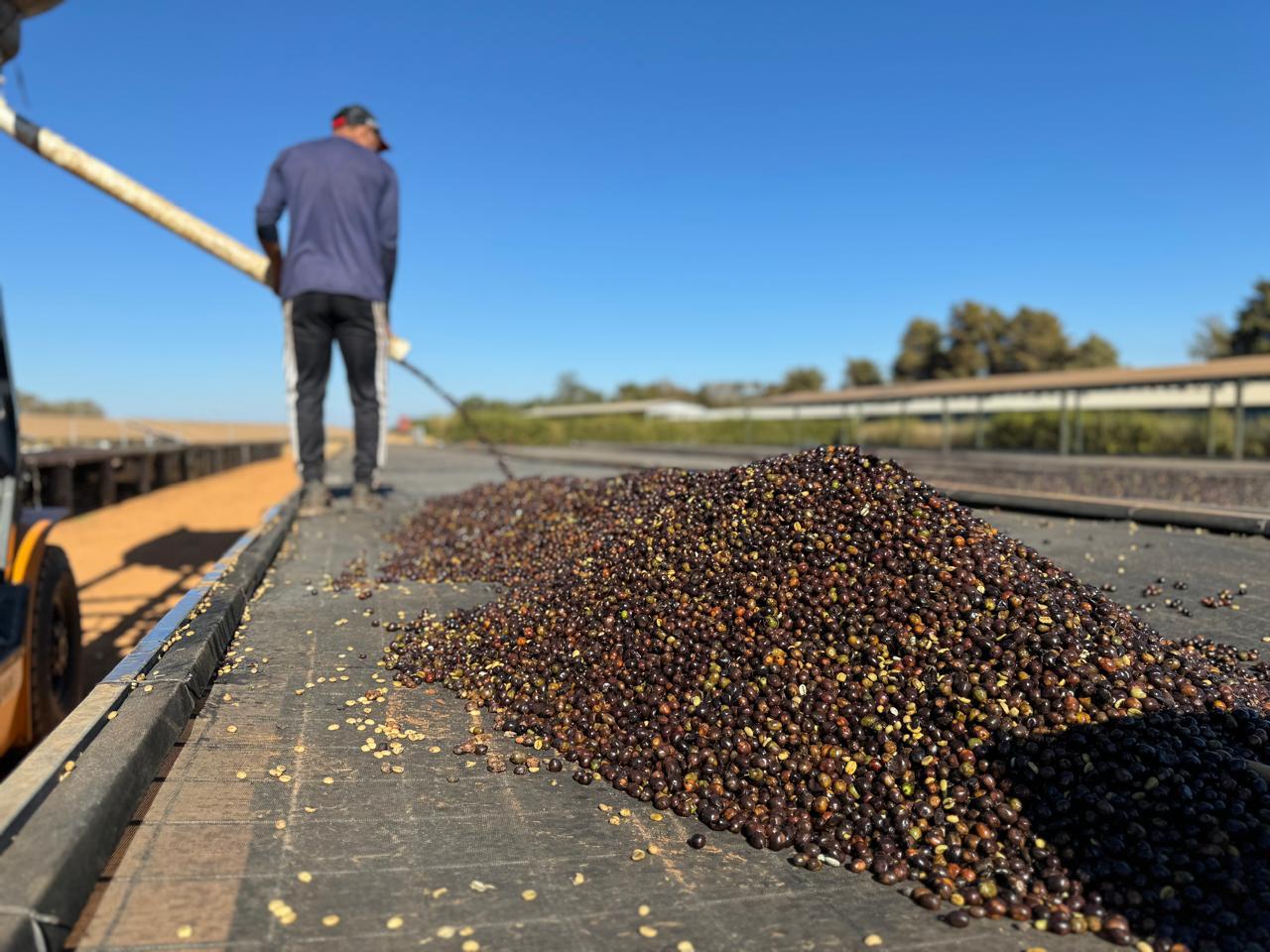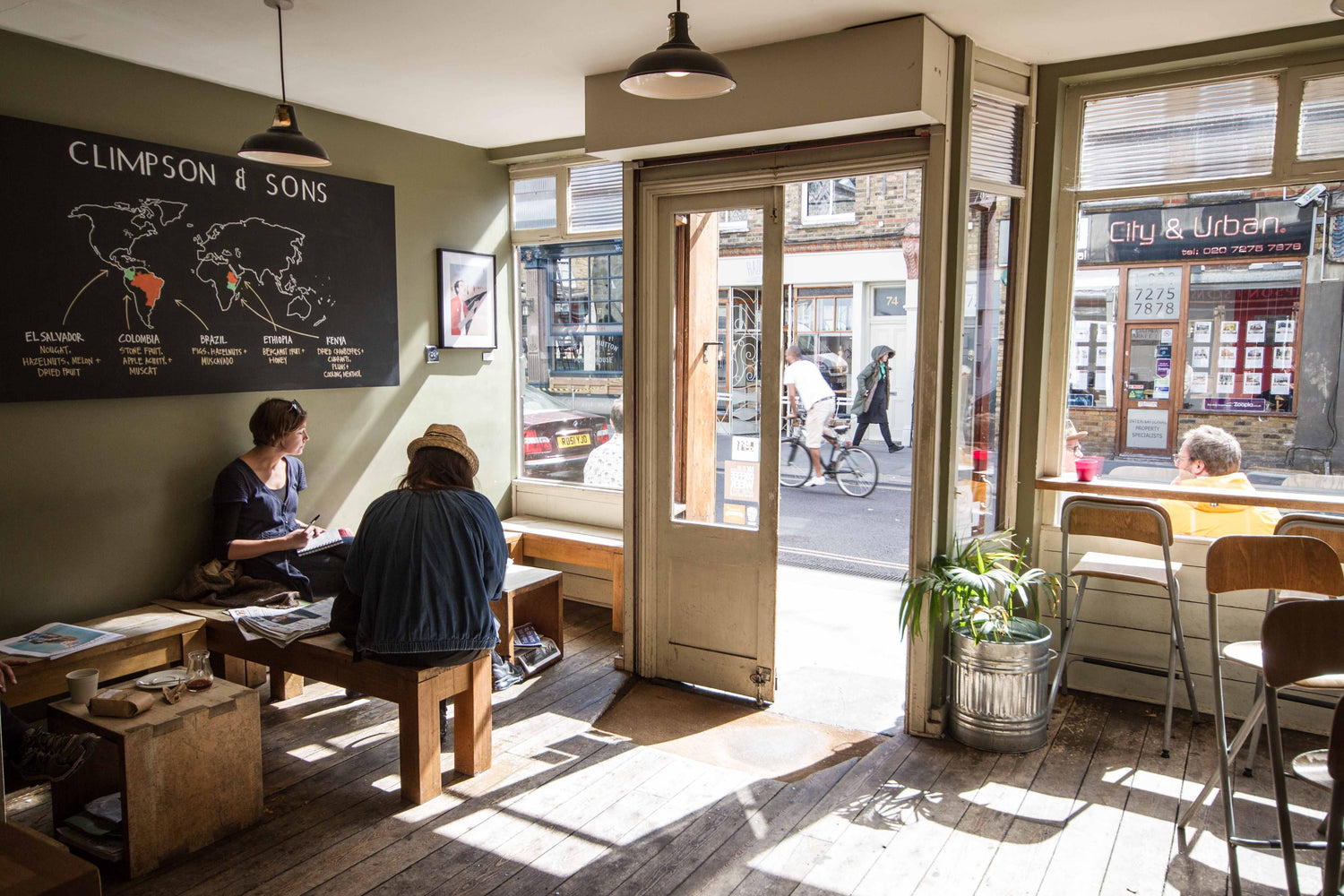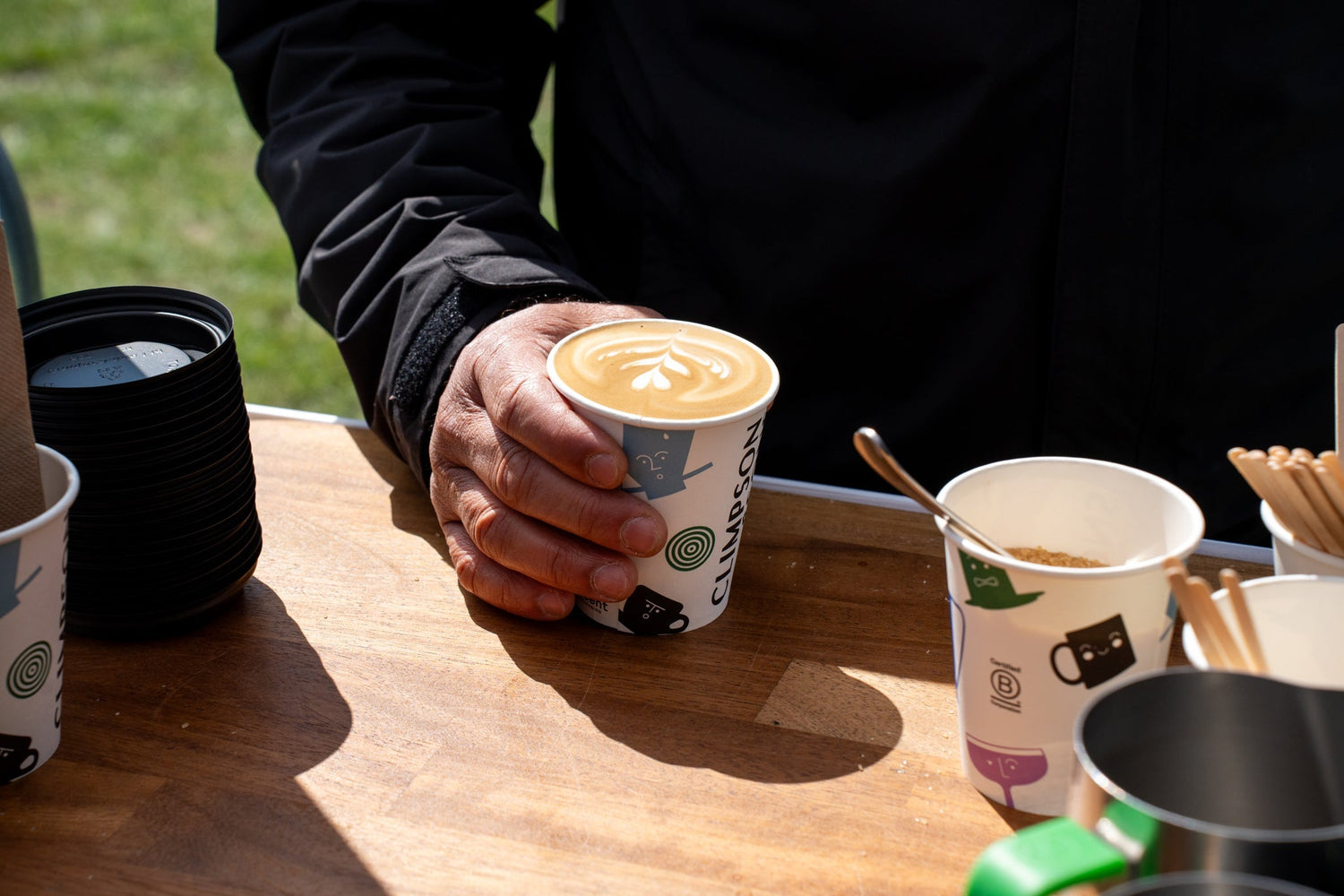By Kieran Lamont
At Climpsons we’ve been spending some time looking at different water filtration options from high end reverse osmosis systems all the way down to our local London tap water, as well as a couple of popular bottled water options and filtering jugs to cater for the home user too. This research culminated in us hosting a public cupping to test 8 different waters with the same coffee to demonstrate the different ways that water can affect flavour. This blog post is about the considerations that went into our selection of each water and other implications that choosing specific waters can present.
We approached it with three main requirements in mind: taste, cost and sustainability. The aim of our work was to be able to offer the home user affordable options for brewing as well as offering insight into the best style of filters for coffee shops, both from the perspective of quality and machine protection.

What is in your water and how does it affect coffee?
The term ‘parts per million’, or PPM refers to how many dissolved solids are present in the water and is often used when determining appropriate water for coffee. London is known for having very hard water and our untreated tap water at the roastery is around 370ppm. In contrast, water in Edinburgh is reportedly around 25ppm, which is incredibly soft compared to London and will not only make the coffee taste completely different but it will also have a different impact on your machine.
SCA recommends that water used for brewing coffee should be anywhere between 75-250ppm, ideally 150ppm. Anything that is too low on this scale will not have the sufficient force to extract all the flavours that you require in your brew, this will likely cause the coffee to be under-extracted and taste flat, sharp and thin. Anything too high on this scale will likely be over-extracted and taste bitter, astringent and offer very little in the form of complex acidic notes.
One of the things we’ve learnt is that it’s not just a case of hard water (high PPM) is bad and soft water (low PPM) is good. — what actually matters is what the dissolved solids are and what they’re doing to the brew that really matters. Magnesium and calcium generally make up the bulk of dissolved solids in water and both are beneficial to extraction. Magnesium tends to bring out fruitier more acidic and delicate notes, whereas calcium brings out more chocolatey, creamy, heavy notes. It is important to have a balance of both these minerals when brewing coffee, however, in specialty coffee we generally prefer softer water with higher levels of magnesium to help promote and nurture complex acidity.
How do we get perfect water for coffee?
Reverse osmosis (RO) is a popular, but expensive, filtration method used by many high-end specialty coffee shops to achieve much softer water. These systems work using a semi-permeable membrane which removes the majority of unwanted particles or chemicals, with more expensive models being able to remineralise with beneficial minerals. The problem with this is that unless you get more advanced models, you’re unable to remineralise the filtered water and you may end up with flat-tasting coffee, caused by a lack of magnesium and calcium (good for machine health though). Another problem with RO systems is that for every 1 litre they produce of filtered water they waste and flush away a minimum 1 litre of water containing the filtered minerals.
Another popular filter system that we looked at was the CTU or ‘Calcium Treatment Unit’. These are affordable filters that aim to remove calcium and prevent a build-up of limescale in your equipment. This is obviously valuable as, over time, limescale can wreak havoc on a machine and can cost a considerable amount in damages. The recent problems we’ve found with the CTU’s is they still produce relatively hard water and they filter out a set amount of minerals whether you’re in Edinburgh (low PPM) or London (high PPM) and this may not be ideal for optimum extraction.
A recent addition to our offering at Climpson and Sons is a magnesium enriching filter from BWT called ‘Bestmax Premium’. What we like about this product is it has an adjustable bypass, where the level is set depending on the hardness of your water. It goes through various filtration stages and is then enriched with magnesium. We have had really positive results with this as we know magnesium enhances fruity acidity, which has worked excellently with our morning batch brew as well as producing less harsh, more balanced and sweeter espresso. We’re currently extending our trial of this product to our coffee bar down at Spitalfield’s, so if you’re a regular then let us know if you notice a difference!

The cupping
So, back to our cupping last week, we cupped ‘The Estate’ with 8 different waters to see if we could notice any difference. We used Evian, Tesco Ashbeck, RO, CTU, Bestmax Premium, tap water, cupping water and a domestic Brita Filter. It was evident from our custom cupping water and the ‘Bestmax Premium’ that higher levels of magnesium definitely increase acidic complexity and produced some of the favourites on the table. There were some differing opinions but everyone was united in their disdain for the Evian bowl, interestingly it was almost as hard as tap water, with a very high PPM compared with Tesco Ashbeck and very high calcium content which resulted in a bitter taste and chalky texture. Ashbeck favoured very well, most likely due to its low overall hardness and closer alignment between magnesium and calcium, producing a sweeter more balanced coffee. In my opinion, the domestic Brita filter did offer an improvement on the tap water in the form of overall cleanliness and clarity, although a few people didn’t mind the tap water.
The main take away from all of this was that whilst taste is subjective, certain minerals promote higher levels of extraction and certain minerals also undoubtedly damage machines. It was also helpful to remind ourselves that it's not as simple as soft water vs hard water, but also what’s in the water that counts. For brewing at home, Tesco Ashbeck water might be a good choice, but Brita is much more environmentally friendly and tap water can work well, especially if you’re outside of London. For the longevity of espresso machines, a filter that reduces calcium content and produces water that’s 200ppm or less is generally advised. Lastly, choosing a water that is high in magnesium produces sweeter and more complex brews and is especially suited to the specialty coffee industry. Everyone's water requirements are slightly different but hopefully, this has provided some of the basics to make a more informed decision.
Minerals cheat sheet:
Calcium & Magnesium
Calcium and magnesium are commonly found in UK tap water with calcium being more abundant, but also one of the main causes of limescale issues. In coffee brewing, magnesium tends to produce sharp, fruitier flavours and calcium typically emphasises heavier, creamy notes. This mineral balance is especially important for a coffee-like The Estate as not only do we want complex acidity but we also want a full-bodied espresso that is suitable for milk drinks too.
Sodium
Sodium is usually found in tap water in low levels and can add sweetness to a coffee’s flavour, although sodium is a component of salt, so too much will be very bad for your brew — nobody likes a salty coffee! The amount of sodium in European drinking water is limited to 200 mg/l while the SCAA recommends as little as 10 mg/l of sodium in its brewing standards.
Iron & Copper
Iron and copper can leach into mains water from old pipes and water mains and even in small amounts they can cause a metallic taste in coffee. Both are best filtered out, but both are present in UK tap water.



